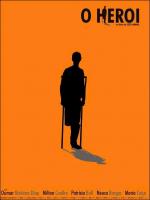culture
Articles tagged with culture
Tag Archive
- A House in Luanda
- Africa.Cont
- African Americans
- african citys
- afro-brazilian
- agricultural work
- Aimé Césaire
- Angolan Journalist
- annett stenzel
- Benedict Anderson
- Berlin Biennale
- Biodiversity
- Boca Fala Tropa
- brazilian film
- buala
- buala archive
- c
- Carnival
- carnivalesque protest
- colonial unconscious
- conhecimento
- contemporary art
- Cristo do Mundo
- cultura visual
- departures
- descolonization
- drawing
- economia
- Egypt
- elections
- emigrants
- environmental sustainability
- Fernando Anuang´a
- Filipe Mukenga
- film
- Fim do Mundo
- Flávia Gusmão
- fragment
- França
- Frontiers
- havana
- Índios
- intelectualidade brasileira
- intellectual extractivism
- intellectuals
- Jihan el Tahri
- Joana gomes
- João Pedro George
- journeys
- JSF #2
- Kiluanji Kia Henda
- labourers
- LAC
- land-ing
- Language
- language policies
- Leão Lopes
- liberation
- literatura angolana
- literature
- luquebano afonso
- lusitanismo
- luso-afro cinema
- Mamadou Soumare
- Mão Morta
- memories
- Munique
- Museu afro-brasileiro
- Nina Simone
- non-ficcional
- north-south division
- pandemia
- Panorama
- patrice Lumumba
- património
- poesía
- pscianálise
- radio
- reeducation camps
- Resem Verkron
- Resgate
- REVISTA JSF#2
- Routledge
- Ruy Guerra
- Sara Chaves
- Sarah Maldoror
- school
- sequence
- silence
- sociolinguistic milieu
- South Facing
- tecnologia
- Terra Batida
- The Party of the Dead
- Uma Biografia”
- violencia
- war
- We’re still here
- xxx
- Zimbabwe
 This article uses a reading of Zézé Gamboa's award-winning 2004 feature as a basis for an exploration of post-conflict Angolan screen culture and of its impact both at home and internationally. It considers how O Herói‟s depiction of a war-torn nation, and of the impediments to its reconstruction, negotiates between a socially-engaged film-making practice, informed by local tradition and the tenets of „Third Cinema‟, and the demands of a globalised cinema market. The film achieves this compromise by deploying allegorical and symbolic tropes, familiar from the literature, cinema, and political discourse of the era of Angolan liberation (notably, the concept of a socialist „new man‟), to complicate a superficially optimistic story of post-conflict rehabilitation, and to insinuate a critique of the authoritarian practices and neo-liberal policies of the MPLA government.
This article uses a reading of Zézé Gamboa's award-winning 2004 feature as a basis for an exploration of post-conflict Angolan screen culture and of its impact both at home and internationally. It considers how O Herói‟s depiction of a war-torn nation, and of the impediments to its reconstruction, negotiates between a socially-engaged film-making practice, informed by local tradition and the tenets of „Third Cinema‟, and the demands of a globalised cinema market. The film achieves this compromise by deploying allegorical and symbolic tropes, familiar from the literature, cinema, and political discourse of the era of Angolan liberation (notably, the concept of a socialist „new man‟), to complicate a superficially optimistic story of post-conflict rehabilitation, and to insinuate a critique of the authoritarian practices and neo-liberal policies of the MPLA government.  In Ethiopia films are financed entirely by private businessmen, who anticipate profit out of film production; in a best case, individuals who want to finance films for the love of the art and as a side business with less anticipation of big profit. Yet both groups of producers want to see their production at least covering its own cost and become a sustainable sector.
In Ethiopia films are financed entirely by private businessmen, who anticipate profit out of film production; in a best case, individuals who want to finance films for the love of the art and as a side business with less anticipation of big profit. Yet both groups of producers want to see their production at least covering its own cost and become a sustainable sector. 